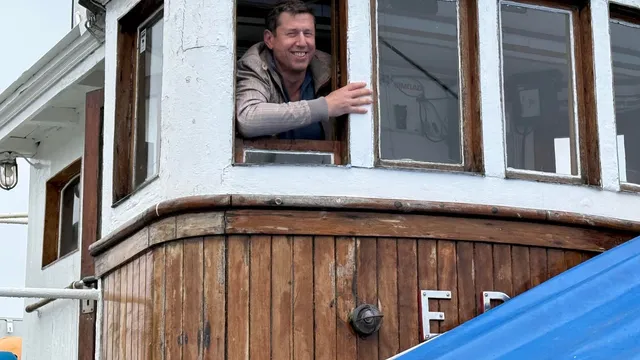
Netherlands remembers war victims with nationwide silence
2025-05-05 07:30- In the Netherlands, the nation paused for two minutes to honor war victims, with trains, cars, and planes stopping in unison.
- A commemorative event in Amsterdam featured emotional contributions from the King and citizens, linking personal narratives to collective remembrance.
- The remembrance highlighted the significance of historical losses while recognizing ongoing struggles faced by victims of war globally.
Express your sentiment!
Insights
On May 4, 2025, the Netherlands observed a solemn national remembrance for victims of war, honoring those who suffered and lost their lives during conflicts, particularly under Nazi occupation. As part of this tribute, trains halted, vehicles pulled to the roadside, and air traffic ceased for two minutes of silence across the nation. This moment of reflection was marked in Amsterdam, where thousands gathered to witness Dutch King Willem-Alexander lay a wreath at a war memorial, symbolizing the collective grief and respect for those who endured atrocities. The commemoration included poignant contributions from young people, including a 14-year-old who shared a heartfelt poem about the bravery of those who resisted oppression. The Prime Minister also addressed the gathering, recounting the personal loss of his grandfather, who was executed for his resistance work, thus linking historical sacrifices to contemporary remembrance. This event not only served to honor past victims but also to highlight the ongoing struggles faced by victims of war today. While many participated in these remembrance events across the country, not all areas observed the silence. In The Hague, a different gathering took place, calling attention to victims of various ongoing global conflicts while incorporating pro-Palestinian sentiments. This divergence points to the complex narrative surrounding remembrance and commemoration, as various groups seek to include all victims of war and persecution in collective memory. Following the silence, a Liberation Fire was lit by veterans to signal the upcoming celebrations of the 80th anniversary of the liberation from Nazi German occupation. These festivities highlight the significance of the occasion, meant to connect the current generation with the historical sacrifices made for freedom and peace, ensuring that the memories of those lost are never forgotten.
Contexts
The impact of World War II on Dutch society was profound and multifaceted, deeply altering the social, political, and economic fabric of the Netherlands. The German occupation from 1940 to 1945 led to widespread suffering, destruction, and trauma among the Dutch populace. The war caused a profound disruption in daily life, as the Netherlands was subjected to strict German control, including curfews, rationing, and censorship. Additionally, the persecution of the Jewish community was devastating, with approximately 75% of the Dutch Jews being murdered in the Holocaust. This loss not only decimated a vibrant community but also left lingering scars in Dutch society that would take generations to heal. The atrocities witnessed during the war, and the complicity of some Dutch citizens in those crimes, initiated a reevaluation of moral values and national identity post-war, leading to a more liberal and open society in subsequent decades. Economically, the war had significant repercussions. The destruction of infrastructure, industries, and homes created a challenging rebuilding process in the years following the conflict. The Marshall Plan, initiated by the United States in 1948, was crucial for the Dutch recovery, providing much-needed financial aid to restore the economy and improve living standards. This period of reconstruction also saw the rise of social welfare policies as the Dutch government sought to provide support for those affected by the war, resulting in the establishment of a more comprehensive welfare state in the Netherlands. The focus during this time shifted towards not just recovering economically but also addressing the social injustices that had been revealed during the occupation. Politically, the effects of World War II were instrumental in shaping contemporary Dutch democracy. The war highlighted the fragility of freedom and democracy, leading to a reaffirmation of democratic values among the Dutch people. After the liberation, political changes emerged as citizens began to advocate for a more significant say in governance, culminating in the establishment of a more consensus-based political system. The post-war period also saw the rise of new political parties and movements, such as the Socialist Party and the People's Party for Freedom and Democracy, which sought to address the needs and rights of the populace. These shifts significantly impacted political discourse, leveraging lessons learned during the war to prevent future totalitarianism. The cultural landscape of the Netherlands was also transformed. The war prompted a critical examination of accountability and moral responsibility, sparking a rich discourse on themes of resistance and collaboration in literature, film, and art. Artists and writers began to grapple with the consequences of occupation and war, leading to a deeper exploration of Dutch identity against the backdrop of historical trauma. Furthermore, the rise of pacifism and anti-war sentiments became prominent in the post-war culture, influencing generations to reimagine national priorities towards peace and collaboration. The collective memory of World War II continues to play a significant role in shaping contemporary Dutch society, reminding future generations of the importance of tolerance, democracy, and the dangers of extremist ideologies.